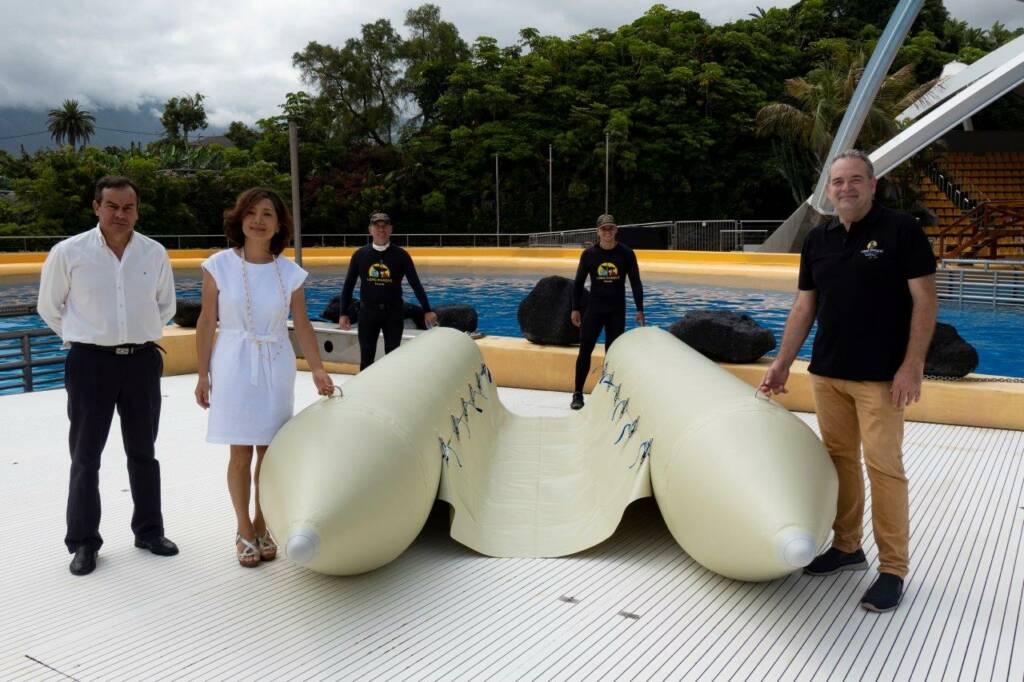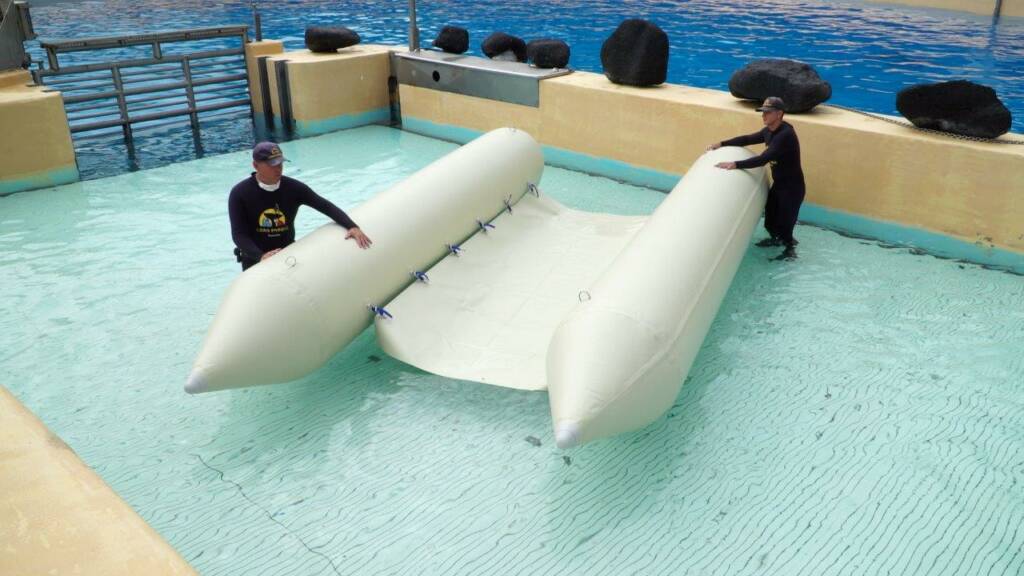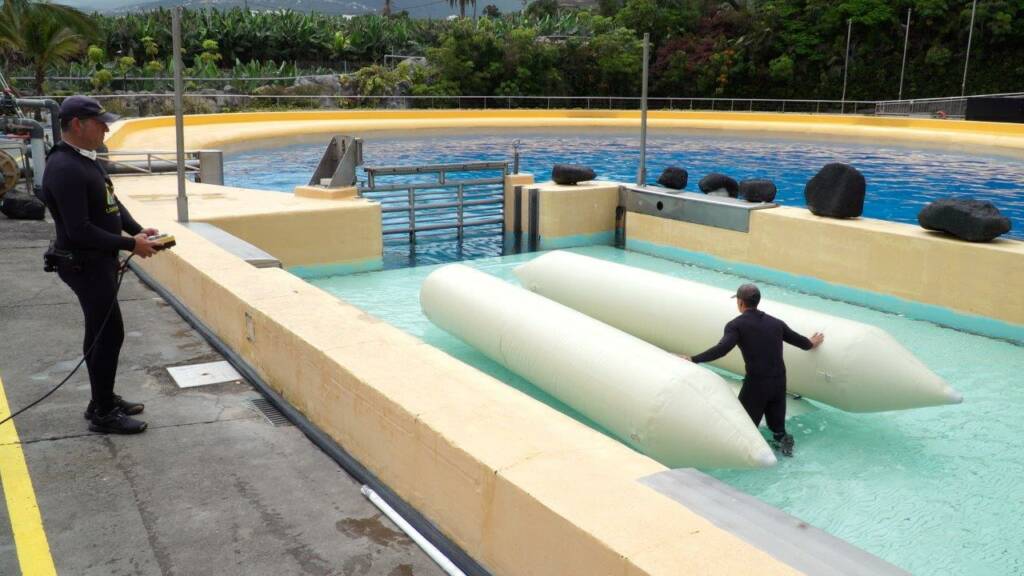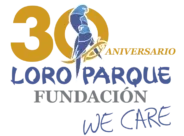
This morning, on Tuesday, 30th of June, the company ZEBEC, manufacturer of the floats for the water park Siam Park, has delivered to Loro Parque Fundación a first prototype of a pontoon for the refloating of cetaceans.
The aim of the Foundation is, based on this prototype, to develop an optimized model for the rescue of stranded cetaceans, a work that will be done in collaboration with the University Institute of Animal Health (IUSA) of the University of Las Palmas de Gran Canaria (ULPGC).
From this moment on, the pontoon will be at the disposal of both IUSA and the Canary Islands Rescue Centres that will request it in case they need to refloat a stranded cetacean. In addition, thanks to the tests carried out with the animals of Loro Parque and the stranded specimens of the IUSA, the system will evolve to improve its design.
This collaboration is part of the MARCET II project, in which there is a section dedicated to the design of new infrastructures and equipment for the handling of strandings. The final objective is that, once the design is finished, this type of pontoons will be available to attend cases not only in the Canary Islands, but in the whole of Macaronesia, and more especially in Cape Verde, where mass strandings of cetaceans are very frequent.

MARCET II: cetacean conservation and sustainable development in the Macaronesian Atlantic Area
The MARCET II project carries out several scientific and technological research studies that allow the evaluation and analysis of the impact of human activity on protected marine areas of the Macaronesian Atlantic, using cetaceans as protagonists not only because they are considered emblematic species, but also because they are bioindicators of the good environmental status of the marine areas where they live and contribute to the protection of the marine ecosystem. Likewise, this project contributes to the development of environmental and economic sustainability criteria, with special attention to the activity of cetacean observation.
MARCET II is an initiative led by ULPGC through IUSA and with the direct participation of other five institutions and organizations from the four Macaronesian archipelagos: PLOCAN; CETECIMA; Loro Parque Fundación; Turismo de Tenerife; CEAMAR; Universidad de la Laguna (ULL); Museu da Baleia de Madeira; Observatório Oceânico da Madeira; Instituto das Florestas e Conservação da Natureza IFCN IP-RAM; Direçao Regional dos Assuntos do Mar (DRAM); Universidade dos Açores; Direçao Nacional do Ambiente de Cabo Verde; Instituto Nacional de Desenvolvimiento das Pescas (INDP); BIOS.CV, y Associação de Biólogos e Investigadores de Cabo Verde (ABI-CV).











